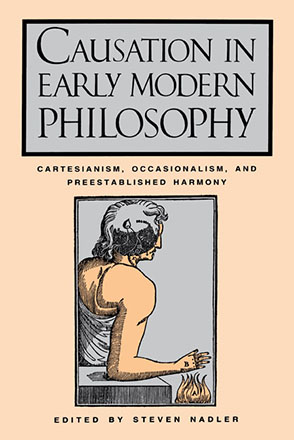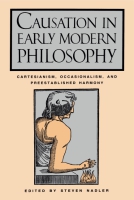
Causation in Early Modern Philosophy
Cartesianism, Occasionalism, and Preestablished Harmony
Edited by Steven M. Nadler
Causation in Early Modern Philosophy
Cartesianism, Occasionalism, and Preestablished Harmony
Edited by Steven M. Nadler
Three general accounts of causation stand out in early modern philosophy: Cartesian interactionism, occasionalism, and Leibniz's preestablished harmony. The contributors to this volume examine these theories in their philosophical and historical context. They address them both as a means for answering specific questions regarding causal relations and in their relation to one another, in particular, comparing occasionalism and the preestablished harmony as responses to Descartes's metaphysics and physics and the Cartesian account of causation. Philosophers discussed include Descartes, Gassendi, Malebranche, Arnauld, Leibniz, Bayle, La Forge, and other, less well-known figures.
- Description
- Bio
- Subjects
Three general accounts of causation stand out in early modern philosophy: Cartesian interactionism, occasionalism, and Leibniz's preestablished harmony. The contributors to this volume examine these theories in their philosophical and historical context. They address them both as a means for answering specific questions regarding causal relations and in their relation to one another, in particular, comparing occasionalism and the preestablished harmony as responses to Descartes's metaphysics and physics and the Cartesian account of causation. Philosophers discussed include Descartes, Gassendi, Malebranche, Arnauld, Leibniz, Bayle, La Forge, and other, less well-known figures.
Steven Nadler is Associate Professor of Philosophy at the University of Wisconsin, Madison, and author of Malebranche and Ideas (1992), Arnauld and the Cartesian Philosophy of Ideas (1989), and editor of Malebranche: Philosophical Selections (1992).
Mailing List
Subscribe to our mailing list and be notified about new titles, journals and catalogs.



